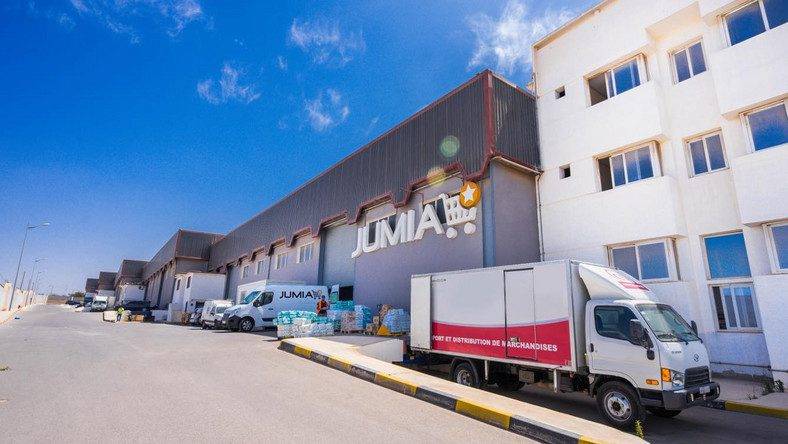Not Really African And Perhaps A Fraud Too? Jumia Stocks Go Under As Fresh Trouble Looms

Not All IPOs Are Born Equal. Jumia Is A Fraud.
Those aren’t my words. That’s what Andrew Left of Citron Research titled a recently released document in which he tries to “expose the smoking gun” that basically screams: “Jumia equity is worthless.”
And since then, the stocks of the Africa-focused e-commerce giant has plummeted, doing a nosedive by as much as 12 percent at the end of trading on Thursday, and still in free fall.
“If you’re reading this report, Amazon knows more about e-commerce than you and Naspers knows more about Africa than you. Both companies have either divested or avoided investing regardless of valuation in the Nigerian e-commerce market, which is the growth story behind Jumia,” reads a line from Andrew Left’s research; a known activist short seller.
The research goes on to call Jumia a “fraud that deserves immediate SEC attention.” And it seems the scathing attack on a company that prides itself as “Africa’s first tech unicorn” has created panic, bringing its previously-skyrocketing share price back down to earth.
Citron claims to have “never seen such an obvious fraud as Jumia in all its 18 years of publishing.” It cites material discrepancies” between the company’s confidential investor presentation from October last year and the information it released to the Securities And Exchange Commission (SEC).
The “no-holds-barred” report claims that Jumia inflated active customer and active merchant numbers by as much as 20 percent and 30 percent respectively, while 41 percent of the orders the company claims to have completed were actually returned, not delivered, or cancelled outright; falsified data intended to mislead unsuspecting stock buyers.
“When a company markets to investors ahead of its IPO and then a few months later omits material facts and makes material changes to its key financial metrics to make the business seem viable, this is securities fraud,” the report says.
Media publications in Nigeria, Jumia’s biggest market, were also referenced in the report, all pointing the “fraud finger” at Jumia.
Although the company’s executives are yet to comment on the damning development, it appears social media is agog with incensed users who have been following proceedings and are calling out the company for “not only lying about its identity as a ploy to woo African customers but also not being forthright with its numbers.”
Jumia has gotten the stick in recent times as many appear to be at odds with both the company’s service and its identity. An unprecedented USD 326 Mn funding round saw the company attain unicorn status in 2016 but there are those who protest its claims of being Africa’s first tech unicorn; calling it a “tech company in Africa” and not necessarily an “African tech company.”
Although Jumia appears to be headquartered in Lagos, Nigeria, and even as it is operational in 14 African countries, its claim to the continent is steeped in never-ending dispute. And that’s because one can trace its founding to France, its incorporation and legal registration to Germany, its tech centre to Portugal, and its top management to Dubai.
Also, when the company decided to go public, it chose to file for an IPO in the New York Stock Exchange (NYSE); supposedly making history when it became the first “African” tech company to be listed on the NYSE, with Jumia’s major executives including Sacha Poignonnec, co-CEO of Jumia Group, and Juliet Anammah, Chief Executive of Jumia Nigeria, doing the ceremonial bell ringing to kick off trading day on Jumia’s first day of trading on the NYSE.
Jumia shares began trading on April 12 this year. With its shares priced at USD 14.50 after initially setting a share price range between USD 13.00 and USD 16.00, Jumia offered 13.5 million shares for purchase and raised USD 196 Mn. The stock opened at USD 18.95.
Barely four days on the NYSE and Jumia Technologies was already trading at a price almost three times its anticipated initial public offering of USD 13.00 to USD 16.00 per share.
By the close of market on Wednesday, April 17, 2019, the trading price for Jumia Technologies was USD 40.07 — a 111 percent increase from its opening price of USD 18.95.
As it stood then, the early birds that bet on Jumia Technologies (trading as JMIA) on its first day of trading had gained USD 21.12 per share at the close of the fourth day of trading.
Also, At the end of that same fourth day of trading, the already quoted closing figure of USD 40.07 per American Depository Shares(ADS) had brought up the company’s valuation to around USD 3.76 Bn.
In the weeks that have followed, it sure looked like Jumia was on a roll and even the company’s well-documented negative profitability was not doing anything to spook investors. As of early this week, share price even soared 160 percent.
But it appears the story has now changed with the damning revelations of the Citron report. Jumia’s shares have since dipped below USD 29.00 and it could plunge even further down.
All talks of stock recovery on the part of the tech company or vindication on the part of those who have angst for the company and some sort of axe to grind will have to be left in the hands of time.